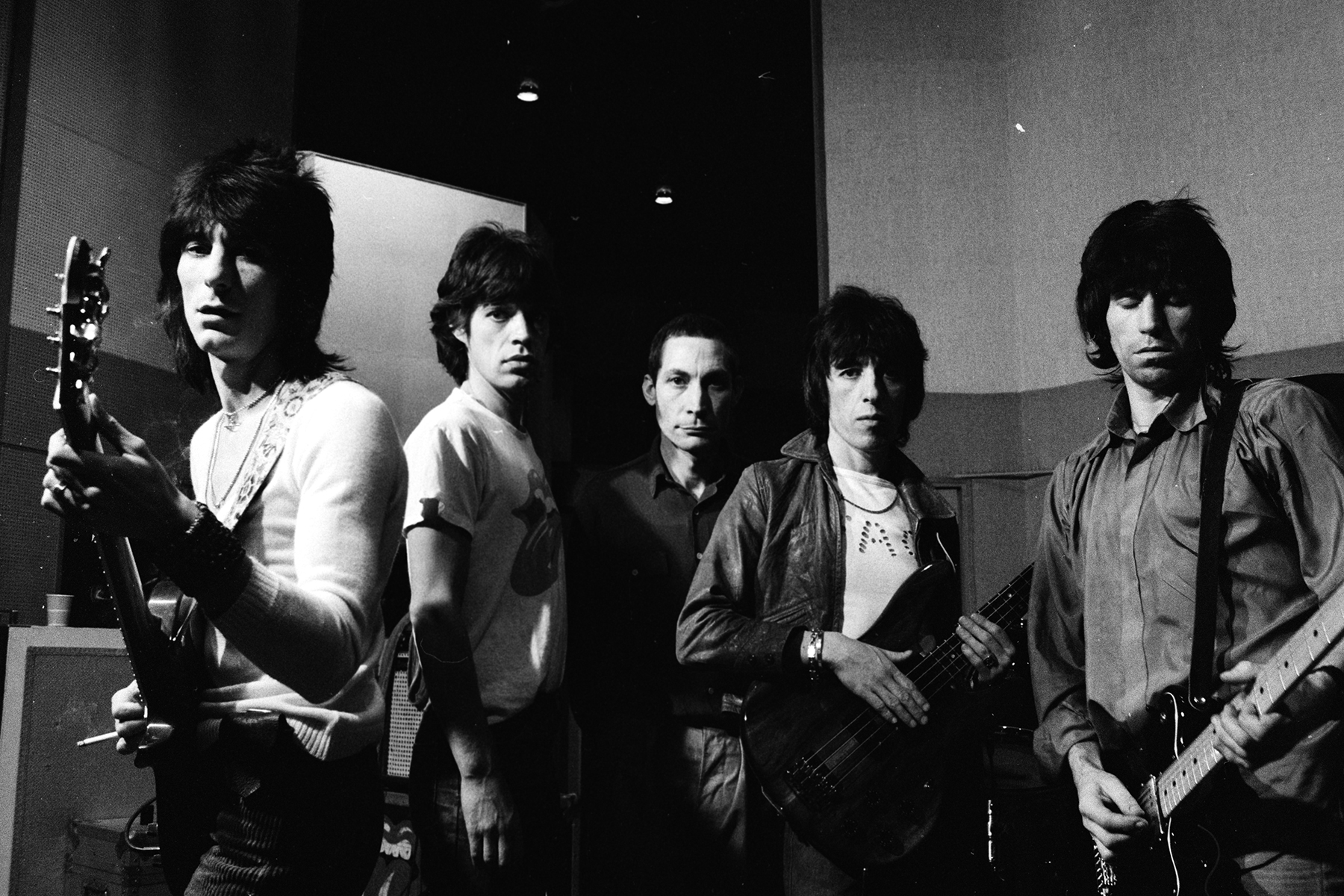For 45 years, the Rolling Stones’ Love You Live has been one of rock’s greatest teases. About 75 percent of the double LP was recorded in arenas and stadiums during the band’s 1976 tour, and presented competent but rarely exhilarating or necessary renditions of concert warhorses and deep cuts. But tucked away (on side three) were four songs cut at Toronto’s tiny El Mocambo club in March 1977, when the Stones played a surprise set billed as “The Cockroaches.”
Playing in front of a few hundred people, and unable to hide behind props like the giant inflatable penis of the 1975 shows, the Stones had to focus on music, not spectacle. And judging from the small portion of the two El Mocambo shows heard on Love You Live, they stepped up to the job. With Mick Jagger unleashing a new style of growl, their crackling covers of Chuck Berry, Muddy Waters, Bo Diddley and Willie Dixon songs paid strutting homage to their heroes, and the recordings were so visceral that you felt as if you were in the first few rows of the 300-seat club. The distant crowd roar heard throughout most of Love You Live was a metaphor for how removed the Stones had become from the average rock fan, not to mention most mundane household chores. The El Mocambo tracks, pushed on by a clearly audible and enthralled small audience, presented them as a band that wanted to re-connect with those fans and stay relevant, just as punk rock was rearing its spiky head.
It’s only taken 45 years, but Live at the El Mocambo marks the official, non-bootlegged release of the rest of those recordings (most from the second night, which was reportedly better than the first). And, by and large, it lives up to the legend, or at least what anyone would have wanted it to be. The you-are-there ambience of what we’d already heard runs throughout the entire album, as does the same bravado and ferocity, whether the band is rolling out “Jumpin’ Jack Flash” for the hundredth time or a cover of bluesman Big Maceo’s “Worried Life Blues.” The relatively intimate (for the Stones) sound quality allows you to revel in Charlie Watts’ drums, the guitar interplay between Keith Richards and Ron Wood (like the alternating solos on “Worried Life Blues”), and sometime sideman Billy Preston’s glistening piano, all of which stand out far more here than on a typical Stones live record of that era.
The four El Mocambo songs tucked into Love You Live weren’t pure; the band overdubbed new parts onto some of them. Live at the El Mocambo restores them to their untouched state–while also erasing a bit of dubious history. On Love You Live, Jagger was heard introducing the band by way of wisecracks about their sexual proclivities: “Billy is open for offers,” “Charlie Watts is sort of a maybe,” “Bill Wyman just wants to take photographs of girls’ legs,” and “ Ronnie Wood’s gay.” Those remarks are completely MIA on Live at the El Mocambo. Perhaps, as with the way the band excised “Brown Sugar” from its recent set list, someone thought those jokes were a tad… insensitive in 2022?
That telling omission aside, what’s most fascinating about Live at the El Mocambo is the way it presents the Stones not as a nascent oldies act but as a working, actively creative band. A few hits from the Sixties are here, but the focus is on their last few albums up to that point. Say what one will about their proto-gangsta, killer-on-the-run saga “Hand of Fate” or the uncomfortably hostile “Crazy Mama.” But the band plays them with deliciously desperate energy, and they overhaul It’s Only Rock ‘n Roll‘s ersatz-reggae “Luxury” into a more typical swaggering stomp. (Wryly, Jagger introduces it “a little-known number we hope to make popular,” which was wishful thinking.) Most of these songs, especially the black and blue ones, wouldn’t be played again onstage for over 20 years, which adds another level of historical interest to these tapes.
With Preston leading the way, they even roll out a rare performance of “Melody,” the lounge-lizard ramble from black and blue, and take their first stage crack at “Worried About You,” the seemingly Motown-influenced soul shuffle that sounds fully formed years before it would wind up on a record. For all the turmoil at the time, especially Richards’ heroin addiction back then, Live at the El Mocambo rolls out a band that was living in the moment, trying hard not to suck in the Seventies.
